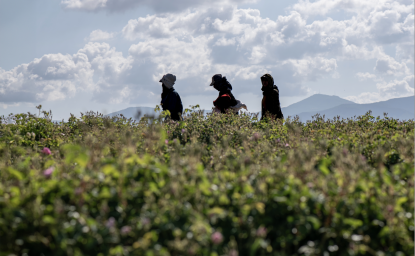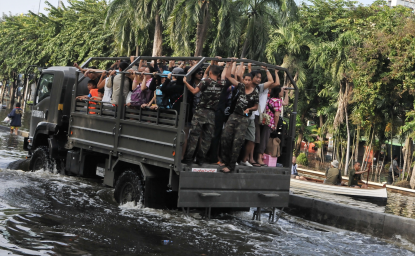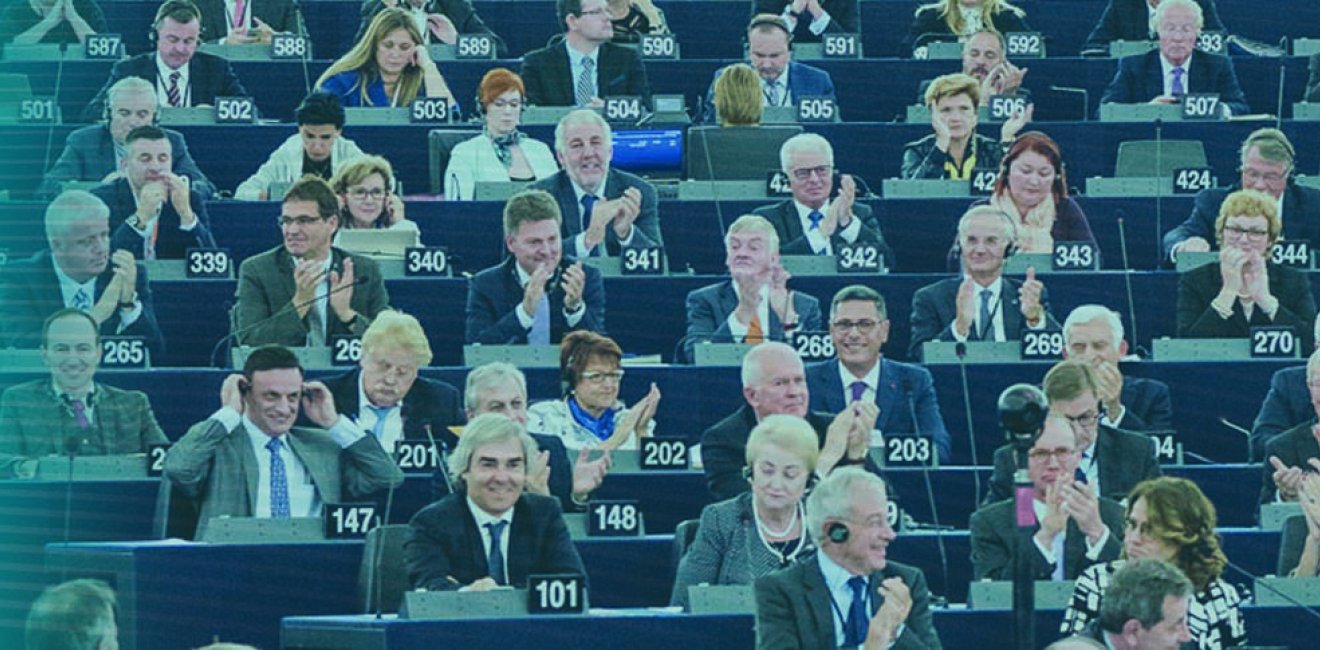The havoc caused by COVID-19 is yet another wake-up call that demonstrates nature’s ultimate power over our lives and societies, and the urgent need for us to better respect and protect the environment upon which we depend. As we seek to recover from the crisis, we must learn from our past mistakes and not become entrenched in them. Building back better means mending our economies and our planet at the same time. It also calls for a stronger integration of the most profound underlying environmental challenge we face—climate change—in the process of building back. This is a tall order, but, as our increasingly vocal youth remind us, we cannot afford to fail.
International cooperation is critical to the success of overcoming this pandemic and addressing climate change. Just as the virus ignores all borders and unleashes its devastation without regard for the responsibility or resilience of nations, so do the emissions from industry or melting permafrost. To win, we must demonstrate cooperation and solidarity, as individual nations, as partners, and as a single global community.
The negotiation and signature of the Paris Agreement on Climate Change by 196 states demonstrated that such an approach—and a more sustainable and resilient future—is possible. Together with another landmark global agreement—the 2030 Agenda for Sustainable Development—it charts a clear path to deliver the economic and societal transformation needed to preserve our planet and shared future.
The EU has always been at the forefront of this multilateral climate diplomacy and is strongly committed to implementing the Paris Agreement and to sustaining and nurturing the global momentum behind its goals. COP-26, due now to take place in November 2021, will be a moment of reckoning. At the meeting in Glasgow, the international community will have to set new, ambitious, emissions-reduction targets for 2030, and map the way towards climate neutrality by mid-century.
The Urgency of Now
But even this may not be enough. Science tells us that the climate crisis is accelerating. We must adapt faster. In December of last year, the EU set a target of being climate neutral by 2050 and adopted an ambitious new growth strategy to this end. The European Green Deal, together with our budget for the next seven years and the EU Recovery Plan, are designed to transform Europe into a greener, resource-efficient and competitive economy, and to help our partners to do likewise. We are determined to succeed in this ambition, and to inspire others to follow suit.
Such ambitious and integrated approaches are important for all, but particularly for the world’s largest economies. G20 countries account for almost 80 percent of global CO2 emissions. The G7 and G20 are thus important multilateral fora to drive and coordinate our climate efforts, particularly as both will play critical roles in the multilateral coordination of the post-COVID economic recovery. Global solidarity and multilateralism will be crucial to avoid any lapse into a fossil fuel and resource-intensive recovery. As we rebuild our economies, we must accelerate the transition to a low-carbon future. Our investments now must secure our future, not lock us into an unsustainable past.
The EU devotes considerable energy and resources to its climate diplomacy efforts, with a tailor-made approach promoting constructive engagement with our partners around the world; large-scale and visible activities such as “Climate Diplomacy Weeks;” dedicated programmes for partnership actions with, for example, G20 partners; and new initiatives to engage least developed countries and small island developing states. The EU also leads international cooperation on sustainable finance and works with the international financial institutions to increase green financing.
Mobilizing partnerships at all levels—bilateral and multilateral—to deliver on our climate goals is a core tenet of EU foreign policy. Another is to work to prevent and mitigate the negative consequences of climate change, including related security risks. Climate change is a serious threat multiplier, acting as a catalyst to destabilization and conflict, in particular in the most fragile states. The UN estimates that 40 percent of conflicts are exacerbated by environmental factors. Climate degradation worsens already fragile situations. The most vulnerable pay the heaviest price from natural disasters, increased pressure on natural resources, loss of livelihood, forced displacement or rising social and political unrest. Global warming is not a ‘soft threat’ if you live near Lake Chad and have seen your livelihood disappear along with the water you need. The current pandemic will further amplify climate-related security challenges as more people find their livelihoods destabilized.
The EU’s Impact
In 2008, I was involved in the drafting of a ground-breaking paper on “Climate Change and International Security.” Since then, the EU has led the way, designing its support for the most vulnerable countries to combine adaptation to global warming with conflict prevention. Additionally, Germany has done important work to push the issue up the agenda of the United Nations Security Council.
We work in North Darfur to improve the management of scarce fresh water, so that communities can share what they need to grow food. We work in Vanuatu, to help the country adapt to better handle more frequent extreme weather events. Our satellites track the impacts of climate change, feeding into our conflict early warning system and long-term planning, and helping with disaster relief. Our security Missions and Operations engage to promote security in fragile regions, such as in the Sahel and Horn of Africa where tensions are increasing as the climate deteriorates. And we will do more. Already the world’s biggest climate donor, the EU will continue to increase its financial footprint, with at least 22 billion Euros dedicated to EU international cooperation on climate over the next 7 years.
As a result of our efforts and those of many like-minded partners, multi-level and multilateral governance is stepping up to the challenge of climate change, in all its complexity. Governments certainly bear the lion’s share of the burden in setting ambitious targets, developing the right regulatory frameworks, and ensuring all actors deliver on their responsibilities. They are increasingly engaged and cooperating at all levels, including for example with the Global Covenant of Mayors for Climate and Energy. But societies and economies are not shaped by governments alone. One of the major innovations in multilateral diplomacy of the Paris Agreement was the engagement of non-state actors, and the recognition of their role in the fight against climate change. Its implementation will need even more active public-private partnerships and even wider and deeper community engagement.
Climate diplomacy, like so many aspects of our lives, will be forever marked by the impact of COVID-19. It is up to us to ensure this crisis does not hamper but rather accelerates the pace of multilateralism and climate action. Just like the virus, addressing global warming requires a massive global effort. The EU will stick firmly to its commitments and seize this opportunity for further reform, but we need all our partners to do the same. Together, we have a once-in-a-generation opportunity to “build back better.”

Environmental Change and Security Program
The Environmental Change and Security Program (ECSP) explores the connections between environmental change, health, and population dynamics and their links to conflict, human insecurity, and foreign policy. Read more

Explore More
Browse Insights & Analysis
Can Climate-Resilient Agriculture Become an Engine for Syria’s Post-Conflict Recovery?

ECSP Weekly Watch | March 10 – 14

ECSP Weekly Watch | February 17 – 21



